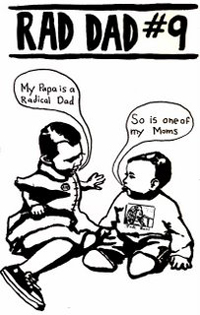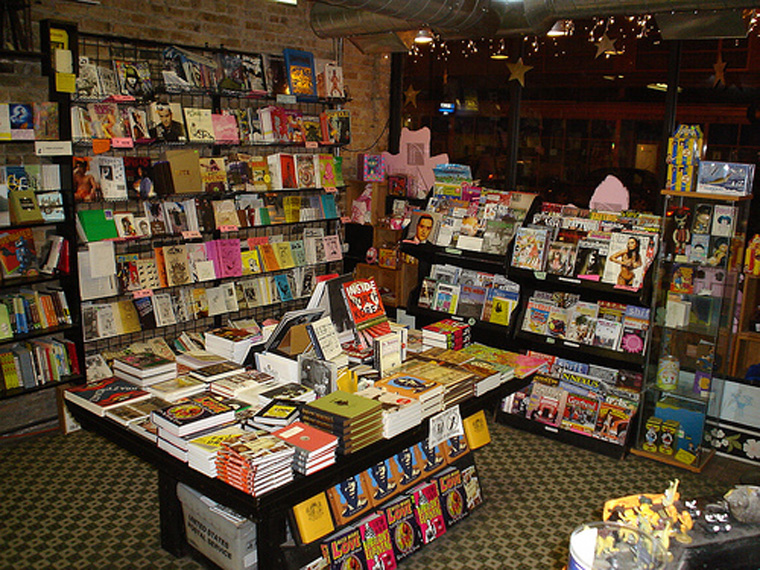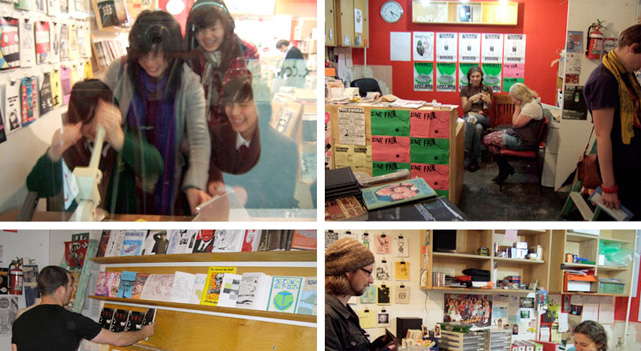Ask anyone in Chicago where the best place is to get independent books and zines, and they will surely have just one answer: Quimby’s. Located in Wicker Park, this bookstore carries almost everything independent, artistic, off-kilter, silly, or profound that you can imagine, and it boasts an intelligent and capable staff to help you navigate it all.
Zine Scene
Zine Scene: Sticky Institute
Melbourne, Australia’s Sticky Institute knows zines.
“I try to read literally every zine that comes through our doors,” manager Luke Sinclair says. The distro, which opened its doors in April of 2001 after Melbourne artist Simone Ewenson visited a similar shop in Amsterdam, carries a variety of zines, “artist books,” and other independent publications. Through support from the Victorian government and the Australian Council for the Arts, Sticky is able to nurture independent artists at every stage of the process.
Zine Scene: Tom Moniz’s Radical Parenting
 “The zine has a life of its own, so as the time for it approaches, I start pulling together my own story and the stories of others, and that’s the most rewarding thing — building community, reaching out, making friends.”
“The zine has a life of its own, so as the time for it approaches, I start pulling together my own story and the stories of others, and that’s the most rewarding thing — building community, reaching out, making friends.”
That’s how zinester/blogger Tom Moniz describes the uniquely organic process of creating his zines, which cover topics like trans and queer fatherhood and the anarcho-punk lifestyle. His works describe not just the parenting styles of its subjects but their lives and passions.
Zine Scene: Retail Relations with Matt Metzler
For the author of comics about the mundane repetitiveness of workaday life, Portland artist Matt Metzler has a curiously “carpe diem” philosophy. “If it seems like a good idea to you and stays a good idea, chances are it’s a good idea,” he says. “Capture it before you’re the one trying to re-tell a joke that nobody will laugh at because you keep forgetting the punchline.”
Zine Scene: Wordplay with Katie Haegele
Katie Haegele’s language-centric zines grew, quite appropriately, out of having something to say, but nowhere to say it.
Zine Scene: The Sociology of Aaron Lake Smith
Like countless other works of art, Aaron Lake Smith’s zines were born out of boredom. The author of Big Hands and Unemployment recalls how he got started in writing, in 2004: “I spent a summer living in a moldy garage behind an anarchist collective in Greensboro, North Carolina. All my friends were gone, and I had nothing else to do.”
Zine Scene: Independence and Creativity in Publishing
Zine Scene is a new weekly column where you can learn about new and established zinesters, as well as other people from inside the scene as they talk about their experiences in the unique and fascinating world of independently published media.


